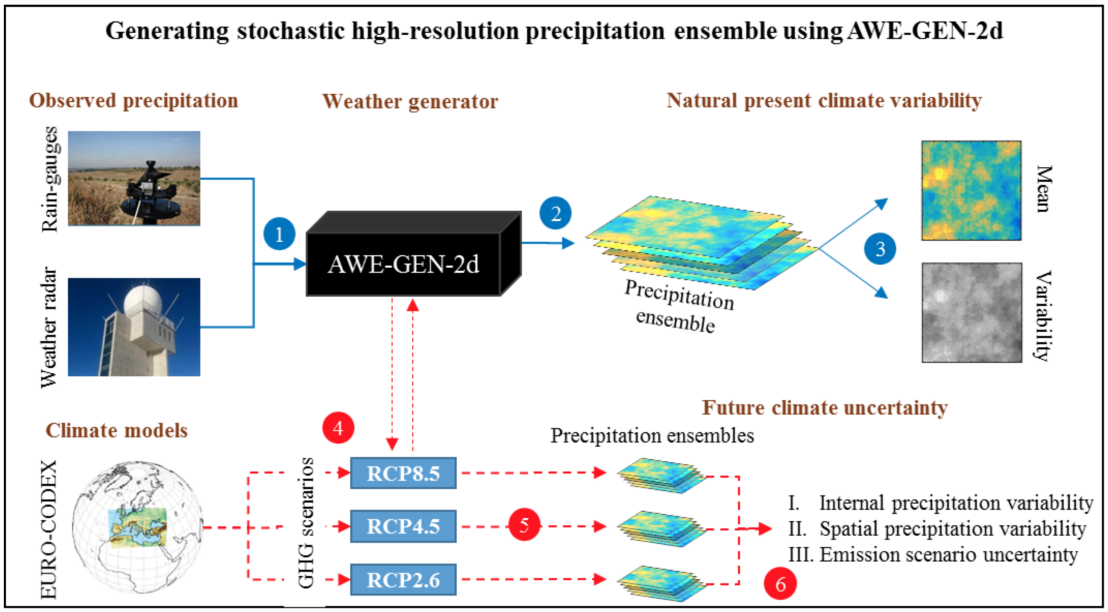HydroCH2018 - Hydrologic evaluation of CH2018 climate scenarios using a stochastic high resolution downscaling approach
Dates: 2017-2020
Funding: Swiss Federal Office for the Environment
PhD Student: Jorge Sebastián Moraga
Principal Investigator: Prof. Paolo Burlando
Team: Dr. Nadav Peleg, Dr. Simone Fatichi, Prof. Peter Molnar

The new climate change projections for Switzerland CH2018 will provide an uncertainty quantification and higher temporal and spatial resolution in climate change signals for precipitation and air temperature, thus allowing conducting a new level of hydrological impact analysis. In this research project we will provide such an analysis accounting for (a) high space (sub-km) and time (sub-daily) resolutions necessary for runoff predictions in Alpine catchments and obtained through advanced downscaling techniques; (b) physically-based hydrological modelling to explictly include a number of hydrological processes (soil water, evapotranspiration, snow accumulation and melt, etc.); and (c) external page partitioning uncertainty , in particular highlighting the role of internal climate variability. A stochastic simulation (downscaling) approach starting from the gridded/station quantile mapping of CH2018 will be used. The project will develop the methodology and apply it to three case study catchments (Thur, Maggia, Kleine Emme), which represent hydrological processes typical of Swiss Alpine catchments. High temporal and spatial resolution gridded climate variables (1 hr, 2x2 km) will be stochastically simulated with a new weather generator AWE-GEN-2d. The fully distributed hydrological model Topkapi-ETH will be used for simulating streamflow. Changes to the hydrological regime in a future climate will be examined with a focus on mean flow and hydrological extremes, as well as on other hydrological processes such as soil water content and evapotranspiration. A key result will be the quantification of traditional uncertainties associated with climate change impact predictions (like climate model and emission scenario uncertainty) as well as internal climate variability (stochastic uncertainty), which are all important for decision makers. The main outputs of the project will be analyses of climate change impacts in the three study catchments, and a new advanced methodology with guidelines for applications in other Swiss catchments.
Moraga, J.S., Peleg, N., Fatichi, S., Molnar, P., and P. Burlando, (2021) Revealing the impacts of climate change on mountainous catchments through high-resolution modelling, J. Hydrol., 603, external page https://doi.org/10.1016/j.jhydrol.2021.126806.
Moraga, J.S., Peleg, N., Fatichi, S., Molnar, P. and P. Burlando, (2022) Uncertainty in high-resolution hydrological projections: Partitioning the influence of climate models and natural climate variability, Hydrological Processes, 36(10), external page https://doi.org/10.1002/hyp.14695.
Moraga, J.S., Peleg, N., and P. Burlando, (2024) Modeling temperature-dependent sub-daily extreme rainfall with a gridded weather generator, Earth and Space Science, 11, external page https://doi.org/10.1029/2023EA003403.